Lots of people have been asking me for school science club ideas recently, so I've put together a collection of science experiments and activities that I think would work really well for Primary/Elementary school age children at a science club!
If you're a teacher, parent or home educator looking for easy, inexpensive, inspiring and exciting school science club ideas, you're in the right place! Scroll through my ideas, print the worksheets and get ready to turn your classroom or kitchen into the best science lab around.
Easy ideas for a school science club
Learn about animations and persistence of vision with a flipbook. My free template makes this an easy activity, and all you need is paper, pens and paper clips.
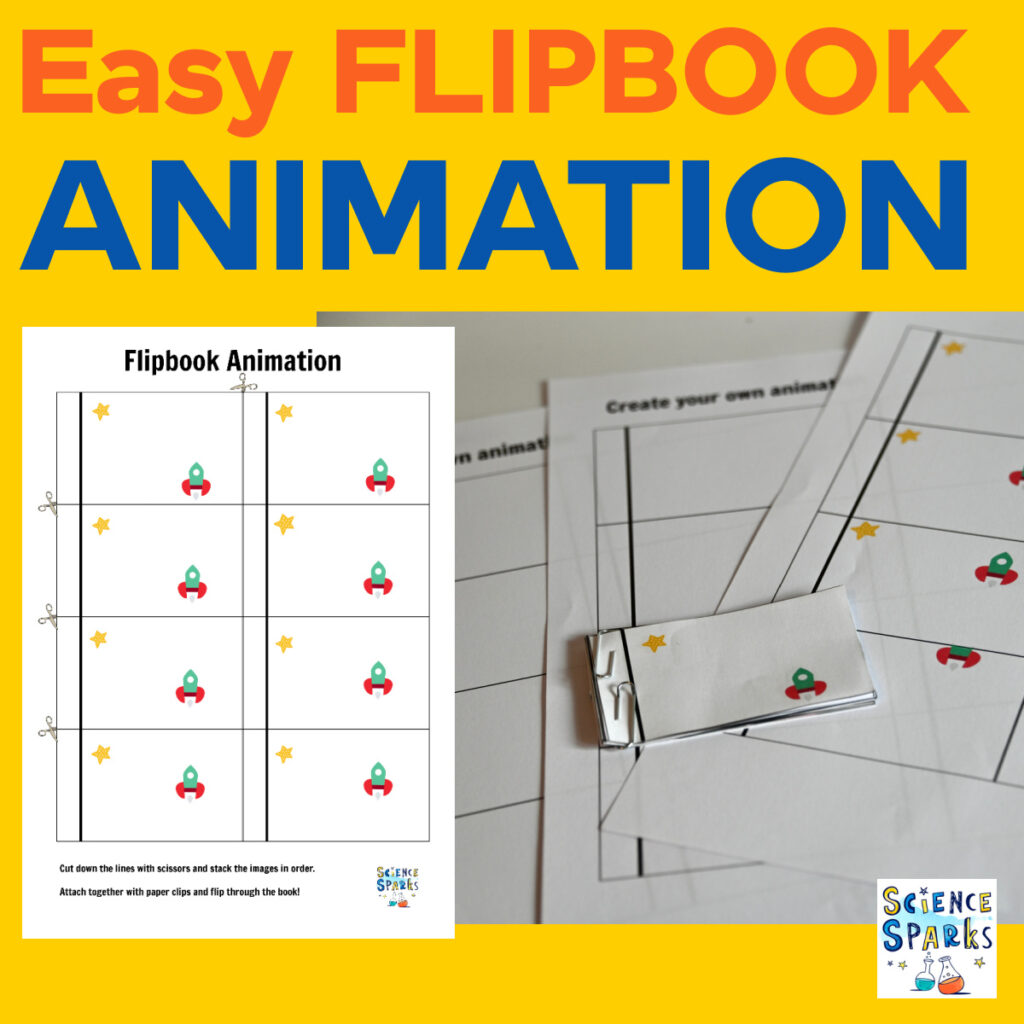
Scribble Bots/Art Bots
First up are our easy Scribble Bots. These are very simple to make using inexpensive and reusable materials. Children can try changing the size of the container, location of pens and alignment of the moving arm to see how the drawing pattern changes.
Scribble Bot Challenges
Build a robot that can draw an almost perfect circle.
Create a robot that can draw a dotted line.
Construct a robot with 8 pens.
Try using a small cleaning brush instead of a Pringles can.
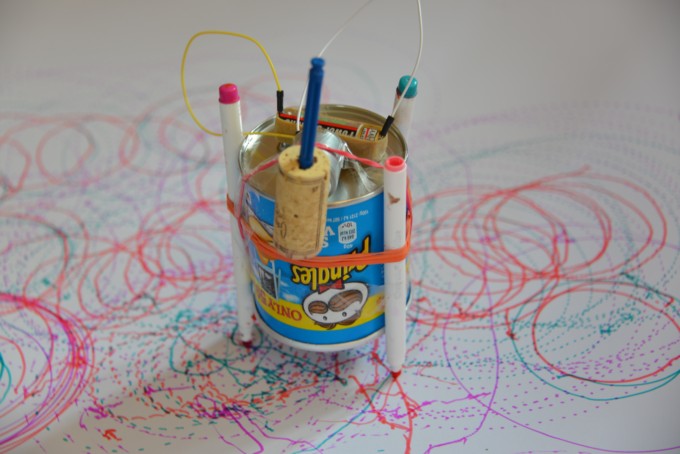
Earthquake Experiments
Build towers and test how stable they are with different edible foundations. I've also got instructions for how to make a simple seismometer.
If you don't want to use food, playdough, and clay, foundations work as well!
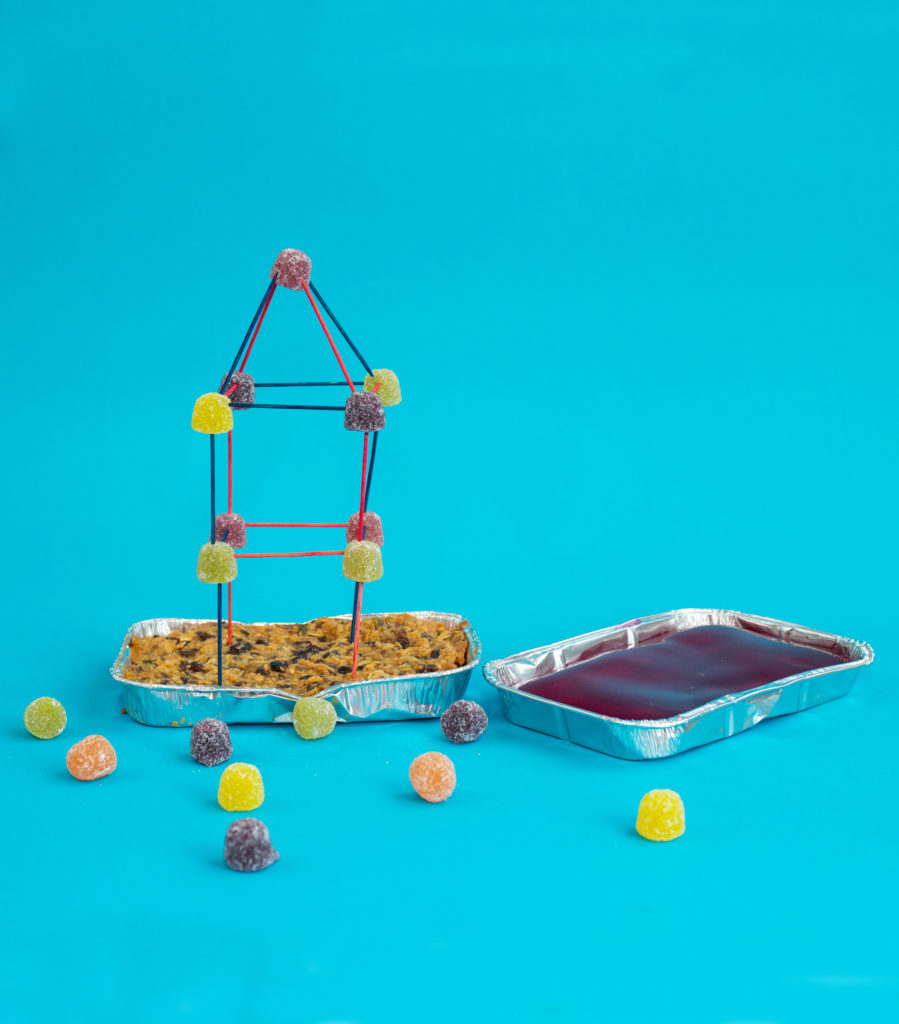
Earthquake Challenges
Investigate to find out how to make the tallest stable tower. One idea is to use stabilising toothpicks to form triangles.
Experiment to find the most stable edible foundation.
Craft Stick Chain Reaction
Craft stick chain reactions are great fun and easy to set up once you get the hang of them. It's definitely worth persevering with for the final spectacular result.
Chain Reaction Challenges
Have a mini competition to find out who can build the longest chain reaction.
Experiment with longer sticks to find out if the reaction jumps higher.
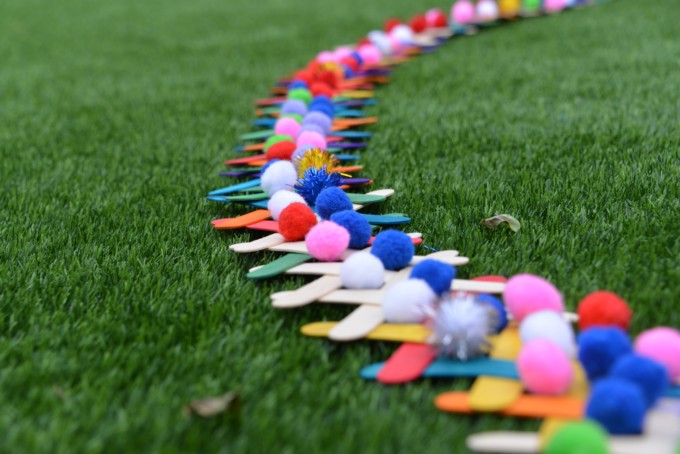
Design and build a different kind of chain reaction, which is sometimes called a Rube Goldberg Machine. Rube Goldberg machines are fantastic for a science club, as children can work in teams to set up unique chain reactions!
Make a Superhero Float
Give children a selection of buoyant and non buoyant materials and ask them to find a way to make a small action figure float.
Superhero Challenges
Investigate to find the smallest amount of material that can be used to make a figure float.
Try to get an action figure to float by another method. Adding salt to water to increase the density is one idea. Or make a boat for the figure to lie in.
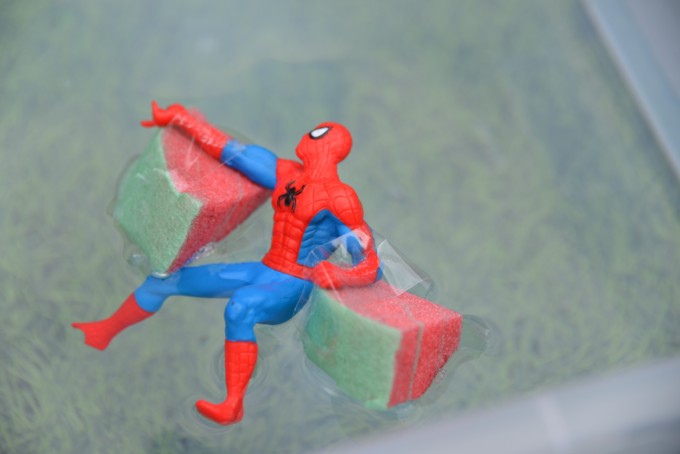
Blow up a balloon with Alka seltzer.
Try blowing up a balloon with Alka Seltzer, an effervescent vitamin tablet or popping candy. If you have the outdoor space, this works really well, followed by a film canister rocket. The fact that the children have seen just how much gas is released by an effervescent tablet makes it easier to understand why the pressure builds up so fast inside the film canister.
Extra Challenges
Experiment to find out how to speed up the blowing up of a balloon reaction. Increasing the temperature of the water or adding more of the effervescent tablets is one way to do this.
Draw a picture on a balloon so it expands as the balloon grows.
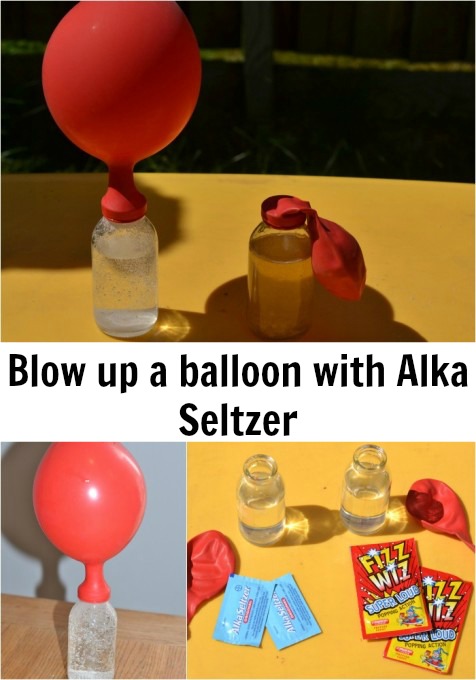
Paper Spinners
These are a super easy, low cost activity using just paper and paper clips. Paper spinners can be used for lots of different investigations, children can try dropping them from different heights, making different sized spinners and observing how they fall differently or adding more or less weight to the bottom end.
Paper Spinner Challenges
Have a competition to see who can make the biggest paper spinner that spins at least once on its descent?
Find out the size of the smallest spinner that still spins.
Race to see who can make the slowest falling spinner.
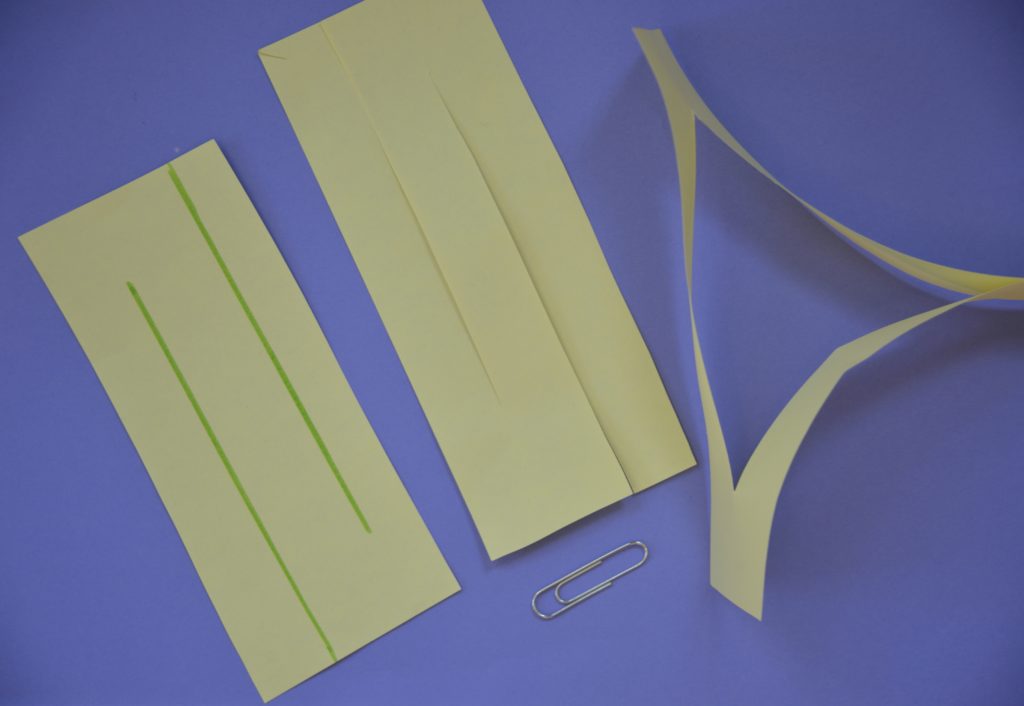
Catapults
Try catapulting different size and weight balls to see which go the furthest, or release from different angles. Children could also design a target and find a way for the ball to make a mark when it hits.
Follow my easy catapult instructions to get started.
Catapult Challenges for Science Club
Catapults are a fantastic science activity for a school science club. They're low cost, easy to make and can be taken home afterwards.
Catapult Challenge Ideas
Who can make their ping pong ball go the furthest?
Who can build the biggest/smallest catapult?
Science concepts
Forces
Trajectory
Transfer of energy
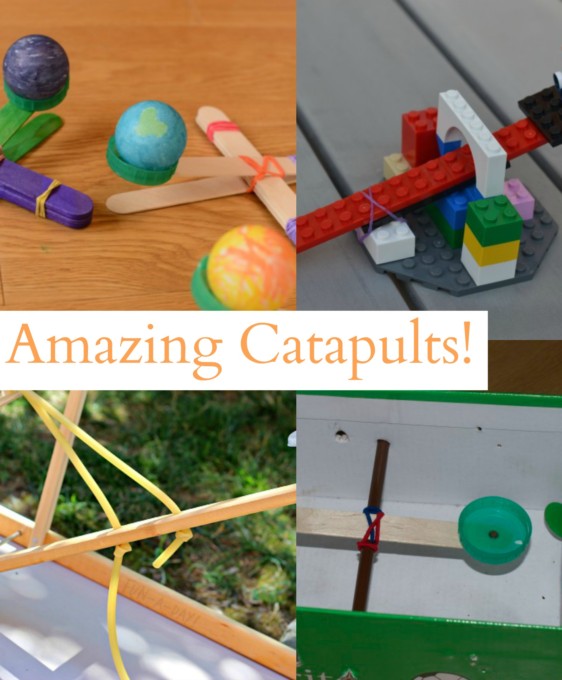
Make ice cream with ice and salt
This is another easy activity and a great demonstration of how salt lowers the freezing point of ice.
To make ice cream with ice and salt, simply place sugar, cream and flavouring into one sealed bag, then place that big inside a bigger bag container ice and salt, roll and twist the bags together until your cream turns into lovely squishy ice cream! Experiment using milk, cream, flavoured milk and syrups to see which give the best flavour.
Remember this can get very cold for little hands so gloves or a tea towel might be a good idea.
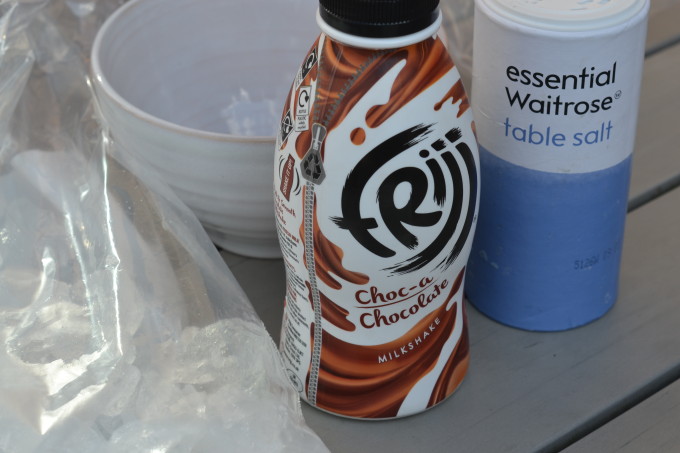
Science concepts
Changes of State
Energy
Freezing point depression
Density Jar
Make a density jar and ask the children to find objects to float on each layer. Give the jar a good shake and watch as the layers separate. Use a pipette to drop water into the oil, observing how it forms spherical shapes.
Once you're finished with the density jar you can add a bit of food colouring to the water and turn it into a lava lamp by adding an alka seltzer.
Density Challenges
Who can make a density jar with the most layers? Try treacle, golden syrup, ice cream syrup, milk, water, honey, and washing up liquid ( dish soap ).
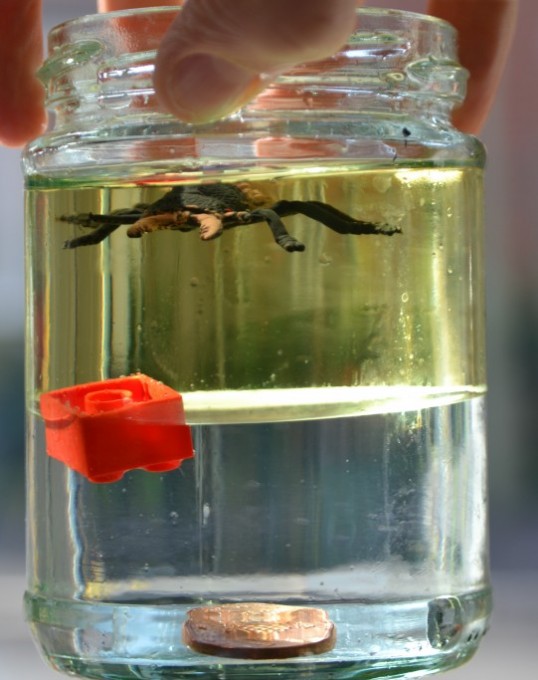
Viscosity Races
Viscosity Races are brilliant fun and a great way to learn how the thickness of a liquid changes how it flows.
Mark two points on a large piece of paper and time how long each liquid takes to run between the two lines.
Viscosity Challenges
Experiment to find the fastest and slowest moving liquids you can.
Discover what happens to the speed of the liquids when you change the gradient of the ramp.
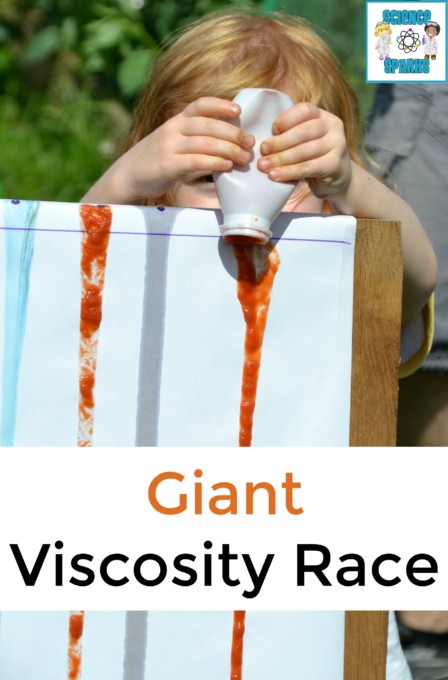
Skittle Magic
Place skittles in water and watch as the colour dissolves from the sweets. You could try using warm, hot and cold water to investigate if changing the temperature of the water speeds up the reaction.
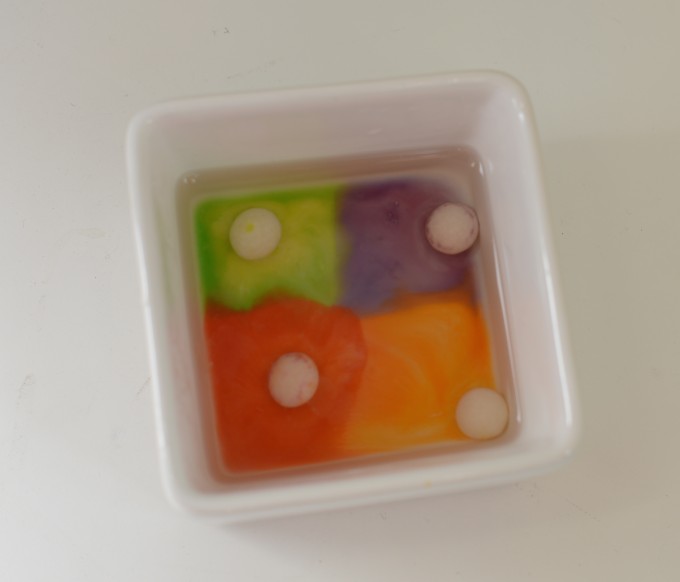
Egg Drop Experiment
How about this fun twist on the traditional egg drop experiment? Ask children to place different materials into sealable plastic bags, place an egg inside and then drop from high up to see which protects the egg the best.
Try changing the material inside the bag, the surface the egg drops onto or the size of the bag to extend the task.
Egg Drop Challenges
Who can build the most effective landing pad for an egg to drop on without breaking?
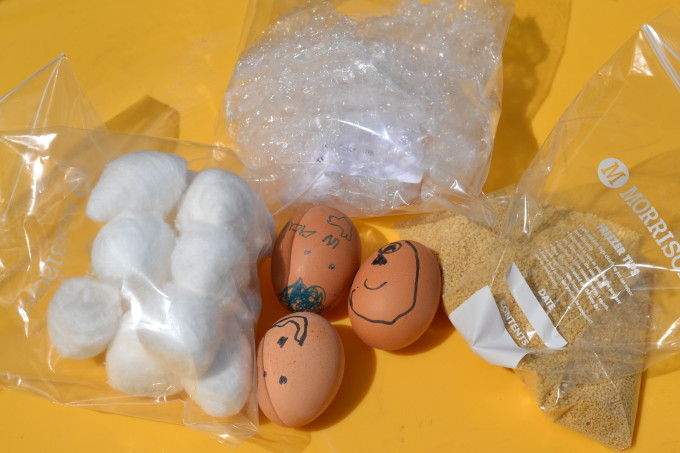
School Science Club STEM Challenges
Find out who can build the tallest spaghetti and marshmallow tower. Straws and plasticine also work well for this.
Construct a tower with sugar cubes.
Create a working water slide or marble run using cardboard tubes and foil.
I've also got 40 fun science challenges with FREE printable instructions available to download.
Let us know if you have more school science club ideas for us.
Why run a school science club?
A science club is a great way to explore beyond the curriculum and increase the amount of science children are exposed to in a fun environment.
Encourages a love of science
A science club can provide a relaxed environment for children to experience exciting, hands-on science without the restrictions of normal classroom learning.
Helps break down stereotypes
There's often a stereotype around science that a science club and early exposure to science can challenge. Exposing children to different scientific fields and learning about trailblazers in the science community can help break down barriers.
Encourage a curious mind
Science is all about the world around us, but encouraging children to look around, ask questions, and discover how things work can help develop a curious mind, and a child who questions and searches for solutions to problems.
Develop critical thinking skills
Science activities help children to think critically and search for answers.
Encourage a growth mindset
Science experiments are a fantastic way to learn that things don't always work the first time, but if you're patient and keep trying, problems can be solved!
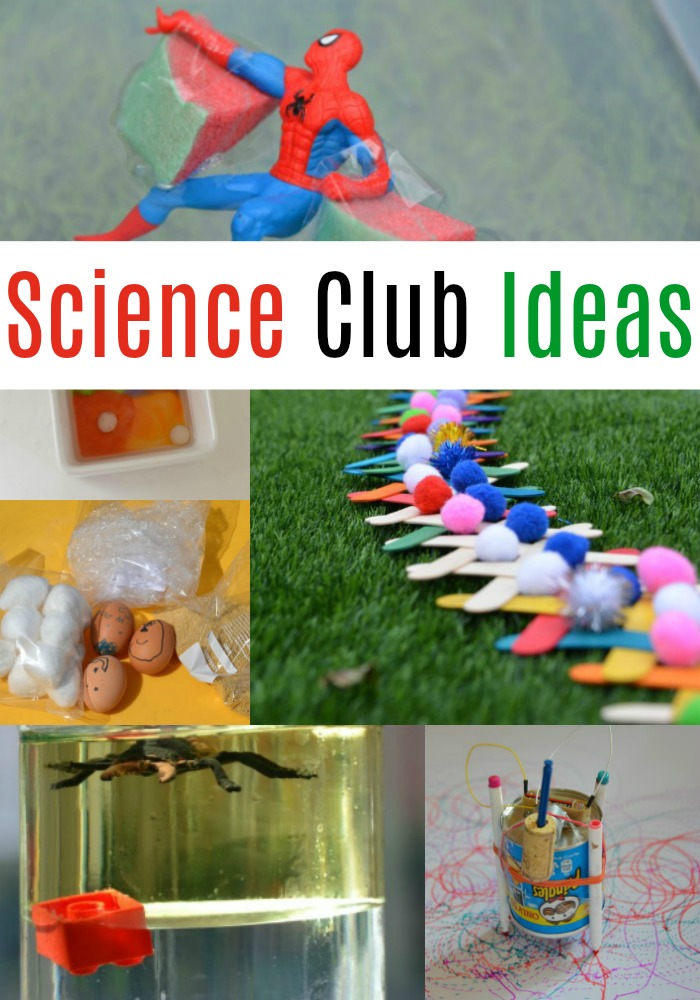
If you enjoyed these science activities, don't forget I've got 100s more science experiments for kids and adults for you to try!
Last Updated on September 8, 2025 by Emma Vanstone
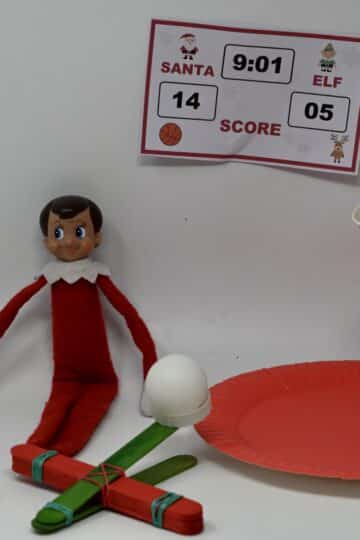
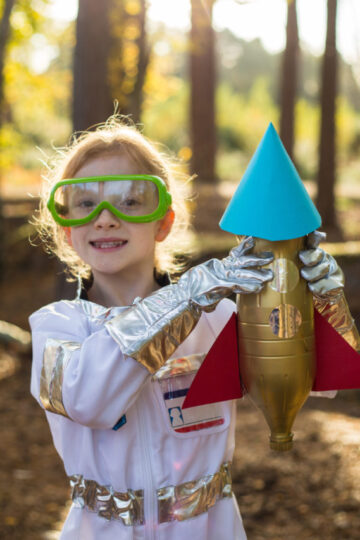

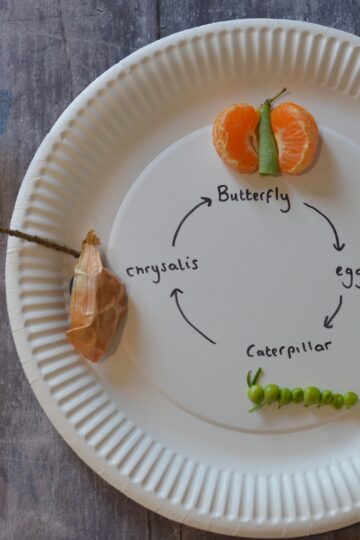
Leave a Reply